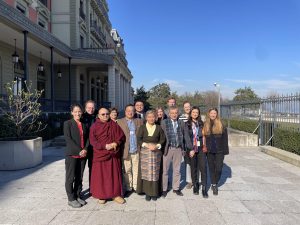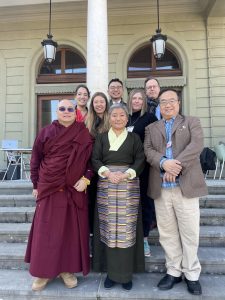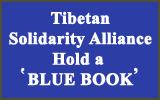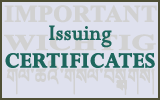UN Committee Questions China on Monoracial Policies and Widespread Rights Violations in Tibet and other Regions

During the last two days, 15-16 February 2023, the UN Committee on Cultural, Economic and Social Rights reviewed China for the third time on China’s implementation of the Covenant. The UN Committee members questioned China on its monoracial policies enforcing forced assimilation of Tibetans, Uyghurs, Mongolians and others as well as the widespread rights violations being carried out in Tibet, East Turkistan (CHN: Xinjiang), Hong Kong, Macau and Mainland China.
Mohamed Ezzeldin Abdel-Moneim, Chair of the UN Committee, chaired the review session. The task force that carried out the review consisted of Country Rapporteur Michael Windfuhr, Ludovic Hennebel, Preeti Saran and Asraf Ally Caunhye. The Chinese government delegation of 39 members was led by Ambassador Chen Xu, Permanent Representative of China, to the UN office in Geneva and other International Organizations in Switzerland.
The UN Committee members repeatedly questioned China on its monoethnic, monoracial policies enforced by China against Tibetans, Uyghurs and Southern Mongolians and noted that these policies of China are evidently counterproductive and in violation of international laws. The UN Committee questioned China on wide-ranging topics related to Tibet, including persecution of Tibetan human rights defenders, forced resettlement of Tibetan nomads, appropriation and mass-evictions of Tibetans from their lands, free and prior consent from Tibetans before construction of mega dams in Tibet, forced labour in Tibet, discrimination against Tibetans in labour markets, freedom of religion in workplace, disparity in access to education for Tibetans, forced assimilation of nearly 1 million Tibetan children in boarding schools, language rights of Tibetans, rights of Tibetans to freely practice their religion including the flying of prayer flags and circumambulation (kora) of holy shrines, large-scale destruction of religious sites, measures to control Tibetan Buddhist practice of reincarnation and so on.
Despite specific and repeated questions from the UN Committee members asking for data and clarification, the Chinese delegation failed to provide satisfactory answers. The Chinese delegation either denied all charges or provided blanket self-praising statements. Exasperated by the delegation’s unsatisfactory line of answering, one of the committee members remarked that if the Chinese delegation considers the well-substantiated allegations of violations as “baseless,” then it should provide details of the investigation based on which this conclusion was arrived at.

The Tibet Bureau Geneva, International Campaign for Tibet and members of Tibet Advocacy Coalition attended the review session. Representative Thinlay Chukki from Tibet Bureau Geneva thanked the UN Committee members for the detailed review of China, touching upon all major areas and noted, “The review evidenced the dedication and passion of the Committee members and the Secretariat to protect and promote human rights.”
“The widespread human rights violations in Tibet are well-documented, and despite this, China repeatedly denies the substantiated criticisms as evidenced in the review. It is time China is held accountable for the egregious human rights violations in Tibet. As we look forward to the Committee’s concluding observations, we hope China will introspect its policies and ensure that Tibetans, Uyghurs, Southern Mongolians, Hong Kongers and Macau people are guaranteed genuine universal human rights,” remarked Representative Thinlay Chukki.
The first day of the China review can be viewed here. Second day of the China review can be viewed here.




